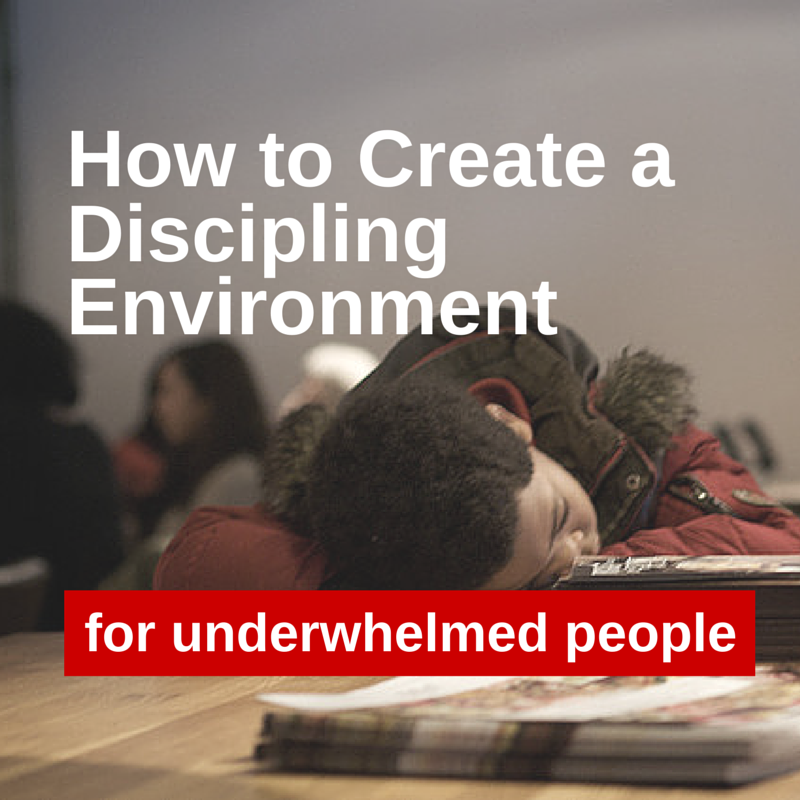Where we’re experimenting with a Fresh Expression the word “unchurched” doesn’t apply.
Two Types of People Underwhelmed by Church
For about a decade, the unofficial slogan of our city has been “Keep Austin Weird.” For many, the slogan has the same effect as the words on the bottom of the Statue of Liberty. We might as well say “send me your weird, quirky, artistic masses that have never felt like they fit in.”
Austin is the place you move to in order to get away, start over and “be yourself.” For many, one of the things they are getting away from are forms of church that they found stuffy, cheesy, overtly political, restrictive, or even hateful.
Not only do they think they know what church is: they moved here to get away from it.
That’s only half the problem.
There are also people who have been around church for a long time. They grew up going to church camp and youth group. They’ve served in their church. For many of the most committed, it didn’t end well.
I’ve lost track of the people who were emotionally manipulated by religious leaders. I know more exhausted former pastors than current pastors. Church plants pop up and fold all of the time, leaving their once hopeful team members with lingering doubts and questions.
A lot of people are just bored. They’ve heard all the self-help sermons. They’ve seen amazing worship bands. They’ve been to the Christmas pageants, even the ones with live nativities.
They’re just over it, and furry animals aren’t going to help.
You’d think that all of this might create a sense of animosity towards the church. It’s the opposite.
People aren’t offended by our faith; they’re underwhelmed by it.
Creating a Space for Discipleship when No One Cares
Knowing this about our city, we’re being intentional about the environments we create. Here are five of the values that inform our approach.
1) Subvert Sunday
Imagine telling someone who’s super skeptical “Hey, you want to come to my theology meetup in a pub on Tuesday afternoons?” The answer would likely be “nah, I’ve got a actual happy hour to go to.”
Or “Hey, do you want to come to a spiritual discussion group at friends house?” For some, that might smell like cult.
Rather than getting rid of Sundays, we work to subvert it. We call our time Liturgy. We sing old hymns. We share the Eucharist. So, it sounds like Church?
But we also spend a lot of time drinking coffee. We get started late and have a 15-20 minute break in the middle. We do what we can to get as many people involved, including on the mic, as possible. We have an open mic prayer time that results in tears, laughter or sometimes boredom.
People think they know what church is, and they’ve decided against it. We try to subvert their ideas with a simple, relational and authentic atmosphere.
2) Embrace your awkwardness
Deep in my psyche, I’ve harbored a sense of fear or guilt. I just felt like I’d be never charismatic or good looking enough to be a leader.
Thankfully, our pastor is one of the most unassuming people I’ve met. He also comes across completely comfortable in his skin.
It’s given me a sense of permission to be my awkward self. It’s okay that I didn’t own a car for our first six months as a church. It’s not a problem that I like comic books more that football. Being unmarried doesn’t exclude me from leadership. After feeling on the margins of a number of forms of church, I’m becoming comfortable in my skin as well.
Many in our neighborhood might think they know what church is: a place where people dress up and act like they have it all together. Instead, they quickly learn that they are among people striving to be honest with themselves and each other.
3) Create means to tell stories
Last Thanksgiving, we decided to skip the sermon and invite people to share stories of thankfulness. One person told a story about burying their beloved grandfather, another about learning to live with chronic illness, and another about adoption.
Something clicked that morning. People opened up more than ever during prayer time. Over the weeks to come, it became clear that we had somehow “solidified.”
Since then, we’ve been very intentional about creating spaces to tell stories. Inspired by Parker Palmer’s description of a Quaker discernment group, we spent our summer in gender specific small groups. Each group member had the opportunity to tell a story, and ask the questions “what is God telling me?” and “what am I going to do about it?”
Our hope is that the storytelling space becomes a discipleship space: a moment set aside to discern the truth about ourselves and the leading of the spirit.
In our culture that is burned out by church, we hope to counter it with opportunities to feel known and be challenged to grow.
4) Party a lot
A year in, we still don’t have a lot of official programs and stuff. But we do try to have a fair amount of parties.
We meet a few times a month for an evening happy hour at a rustic outdoor pub. We have potlucks to celebrate the church calendar. We celebrate birthdays, especially those of the children in our community. We love Monday holidays, because it gives us the opportunity, for long, lazy Sunday night cookouts.
I’m not suggesting that the church needs to host raging crazy parties. But it’s not enough to just host a Sunday service or teach classes.
Becoming more like Jesus is a community affair, so we need a lot of opportunities just to be together. Our prayer is that along the way, genuine relationships will developed and be used by God.
5) Set reasonable expectations
For many, Church is a show. Each Sunday has to be impactful. Each Easter or Christmas bigger than the last.
Our church community is not huge. Our leaders are bi-vocational. We keep our budget in the black, in part, because we don’t do a lot.
We are light years away from dynamic programs or a great light rig or a professional video team. Our children’s ministry looks something akin to a one-room schoolhouse, with older kids joining the volunteers helping taking care of the younger ones.
We begin our Sundays with this preamble to our call to worship:
Welcome to the Liturgy of Austin Mustard Seed.
The word “liturgy” means “The Work of the People.”
Friends and strangers.
Passionate believers.
Hopeful skeptics.
For this short moment, we are all participants and hosts.
We try to set the expectation that all are welcome, but all are participants. Our hope is to disarm any lingering church consumerism with an expectation of participation.
We’re still getting started as a church community. Our hope is that the spaces we created are safe enough for burned out, dechurched people to consider becoming disciples of Jesus. It will be an adventure to see how God continues to shape us!


